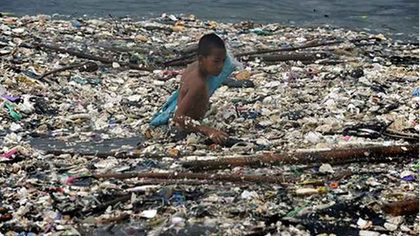SUMMARY
This is AI generated summarization, which may have errors. For context, always refer to the full article.

MANILA, Philippines – Nearly 6,000 informal garbage workers and collectors in several parts of the Philippines stand to benefit from a new US$3 million grant designed to improve their incomes and livelihood, the World Bank said on Tuesday, June 19.
The grant, extended by the Japan Social Development Fund (JSDF) and administered by the World Bank, will provide support to informal garbage workers and itinerant waste buyers located in five cities and municipalities which are modernizing their solid waste management systems.
Motoo Konishi, country director for the World Bank, said that the project “helps address the plight of one of the most marginalized groups in society—men, women and children earning a living from garbage.”
Tens of thousands of people in the Philippines work informally collecting, segregating and selling waste, a community known as the “informal waste sector,” which live as settlers on or near dumpsites and earn a meager income from garbage.
Waste pickers and itinerant waste buyers are commonly unable to access livelihood opportunities through formal, safer or more lucrative means due to lack of education and basic livelihood skills, as well as limited access to startup funds for small business.
The grant money will be invested in equipment, formalizing and recognizing the sector and improving the working conditions of the collectors, particularly their health and safety.
Waste management upgrade
Support will also be provided to informal waste sector participants that are members of existing recycling cooperatives in Metro Manila, according to a statement from the World Bank.
The project will be carried out by the Solid Waste Management Association of the Philippines (SWAPP), a non-profit organization composed of solid waste management practitioners from local government units (LGUs), national government agencies, non-governmental organizations, and the academe.
Recycling cooperatives will also get technical assistance for expanding their business operations and sources of income, as well as training for setting up small businesses and entering the general workforce.
Marginalized group
“We are helping LGUs, communities, and the private sector improve their capability to manage solid waste problems in their respective areas through research, training, technical assistance, information exchange, and network building,” said Grace P. Sapuay, executive vice president of SWAPP.
Sapuay added that the partnership “will greatly boost our programs while helping the less fortunate.”
Under the Ecological Solid Waste Management Act of 2000 (Republic Act No. 9003), LGUs are required to modernize their solid waste management practices and convert open dumpsites to sanitary landfills.
These changes affect the livelihood of garbage workers and itinerant waste buyers, and this is where the grant aims to help the informal garbage workers that will be affected by the upgrade. – Rappler.com
Elsewhere on Rappler:
Add a comment
How does this make you feel?
There are no comments yet. Add your comment to start the conversation.